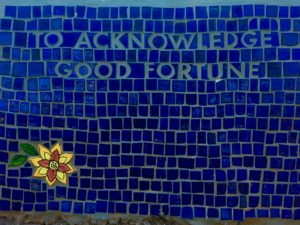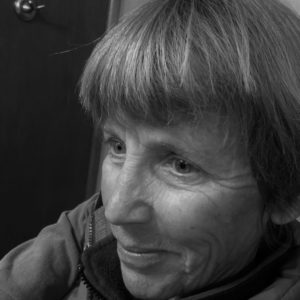 John Kennedy was killed on a Friday. The following Monday, our 6th grade teacher, Mrs. Taliaferro, wrote the words “What freedom means to me” on the board. We spent the class period writing our thoughts on this hard-to-grapple-with topic while she put her head down on her desk and wept. I don’t remember what my thoughts were. I do remember that Mrs. Taliaferro cried silently but with a noticeable shudder of her shoulders. I don’t know if freedom meant much of anything to me on that day. It was an unsettling time that split two decades, one behind and the other to come, in which confusion, alarm, violence and schism were and would be our steady diet. Harder to see were the ways in which transformation was at work.
John Kennedy was killed on a Friday. The following Monday, our 6th grade teacher, Mrs. Taliaferro, wrote the words “What freedom means to me” on the board. We spent the class period writing our thoughts on this hard-to-grapple-with topic while she put her head down on her desk and wept. I don’t remember what my thoughts were. I do remember that Mrs. Taliaferro cried silently but with a noticeable shudder of her shoulders. I don’t know if freedom meant much of anything to me on that day. It was an unsettling time that split two decades, one behind and the other to come, in which confusion, alarm, violence and schism were and would be our steady diet. Harder to see were the ways in which transformation was at work.
We may or may not again be in a prolonged period of change and transformation, but the words on the blackboard are as relevant as ever and worth considering before casting our ballots on Tuesday. What does freedom mean to you? I’ve been knocking on doors all over Flagstaff, not intentionally seeking answers to that question but finding them nonetheless. For the past several weeks I’ve been out on the streets, carrying a clipboard and walking into neighborhoods I never knew existed. Sometimes they’re tucked back into the pines or on a golf course with a view of the mountain. Sometimes the houses are close together next to a busy road. Or the homes are patched-together trailers with rickety steps and doorbells that don’t ring. Or they’re your house, whoever you are. In the poorer neighborhoods, every home seems to be guarded by a snarling dog, some outside in the yard and others inside battering the windows. Richer homes are silent when you ring the bell. No barking. No clatter of claws on the wooden floors. Possibly a Golden Retriever wagging its tail behind a picket fence.
I’ve been educated by my door knocking. Not just by those who have invited me in out of the cold and rain to share a cup of instant coffee, but also by those who asked me not to step on their lawns. My job is to urge people to vote. When that opens a conversation, my job is to listen. I’m a clipboard-carrying stranger at the door—a frightening figure for many in our community. I’m amazed by the honest concerns of those who talk to me. I’m surprised the door opens at all.
A Hispanic woman with a radiant smile comes out of her mobile home. We stand on the steps which are covered with green plastic carpeting. She says, “I think it’s going pretty well, don’t you? I can still buy groceries. I’m still getting my paycheck. No, I’m happy the way things are going.”
In a neighborhood of old cars waiting for a cure, a pale, shirtless man comes to the door wearing work pants, suspenders and a pair of fuzzy slippers. “We can’t mail in our ballots,” he says. “Our mailboxes are vandalized every day. The kids pull out everything and leave it on the street.”
A weary abuela with an infant on her arm and a toddler hiding behind her legs tells me, “I don’t have a ride to the polls, and I don’t know who to call, and I have to stay home and take care of my grandchildren and their mom and my husband.”
Over and over again I hear, “I don’t trust politicians. What have they ever done for me?”
or, “This country’s a mess. They can clean it up without me.” The old promise of freedom is an elusive one. If your purse is empty, you can’t afford to care who in power acted badly or illegally, who gets to sit on the Supreme Court, who gets deported (unless it’s your sister), who won’t reveal their tax returns. You care about now, about feeding yourself and your kids. Your vote implies a belief in the future, and the future is too far away to be on your radar even if it’s just around the corner.
The verb “to vote” comes from the Latin word votum, meaning a wish or a vow. The greatest lesson I’ve learned in my door knocking is that for many citizens, freedom is more dependent on wishing and hoping than it is on voting.
A year after Mrs. Taliaferro asked us to write about the meaning of freedom, I was a mixed-up 12-year-old hiding in her room and freedom was the farthest thing from my mind. Then one day I was invited to put on my navy blue dress and join my grandmother and her circle of friends for an evening at the ballet. They were an unforgettable crowd—artists and writers, musicians and dancers, a coven of creative older women who wore pants and berets and roared with laughter in public and spoke of Henry James as if he were their cousin or neighbor which, in fact, he might have been. And this was not just any ballet, but Romeo and Juliet danced by none other than Dame Margot Fonteyn and that romantic rising star, Rudolf Nureyev. I remember everything—the plush seats beneath my bare legs, the balcony view of the stage just below us, the sense of a great communal breath held every time Dame Margot was lifted and an exhale as she touched the ground again. I remember sitting in the cavernous darkness of the Metropolitan Opera House before the curtain rose, feeling my chest, my heart rise with it. And the dazzle of the dance, the uplift of the bodies, the way they flung themselves into the air as if birds were tied to their waist, urging them upward. It was this flight up and seemingly out that I absorbed with my whole being. I had no idea who these two dancers were. It wasn’t until years later that I even thought about the great privilege of being asked to witness, among all those ferocious, strong women, stevedores of justice and the arts, such greatness on stage. The curtain fell and I was back in the world of being 12 with my homework only half done, yet the upward and outward leap stayed with me, a buzz in my chest and the back of my throat. It was the feeling of freedom. It was a feeling not everyone has the great good fortune to experience no matter how diligently they live their lives.

